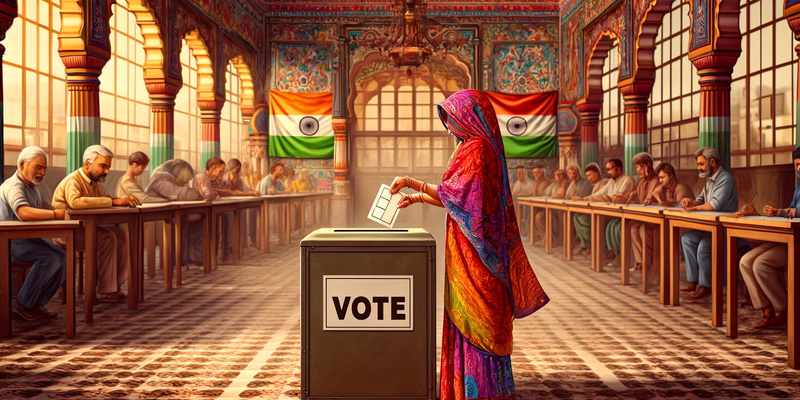
Ever wondered if your single vote can rock the mammoth machinery of elections? It’s a common query, especially in a vibrant democracy like India, where millions cast their votes. But here’s the catch – every vote is a building block in the grand structure of democracy. Let’s unpack why your vote is not just a right, but a powerhouse of change, steering the course of governance.
The Ripple Effect of a Single Vote
Imagine a pebble thrown into a still pond. It creates ripples that spread far beyond the initial splash. Similarly, one vote might seem insignificant in the grand scheme, but it has the power to influence outcomes in surprisingly significant ways. For instance, consider the 2016 U.S. Presidential election where a mere 77 votes in each precinct in Michigan, Pennsylvania, and Wisconsin would have changed the winning candidate. Closer home, there have been numerous local body elections in India where a single vote has decided the fate of candidates. This proves that every vote can be a tide-turner.
A Closer Look at the Numbers: Why Your Vote Matters
Data from various elections across the globe shows a troubling trend of low voter turnout among youth. This demographic, full of potential to drive change, often remains underrepresented. Why should this concern you? Because it’s not just about who wins or loses, but about making sure every voice is heard. In the 2019 Indian General Elections, voter turnout was about 67%, which means a third of the electorate did not participate. Each of these non-votes could have dramatically shifted the policy direction of the country.
The Butterfly Effect in Elections
The concept of “the butterfly effect” in chaos theory suggests that small causes can have large effects. Translate this to elections, and your single vote can be the butterfly, whose wings might just be powerful enough to affect the political winds. By voting, you help in shaping policies that affect everything from the roads you travel to the quality of the air you breathe.
Voting is your direct line to the corridors of power. It’s how you hold leaders accountable and voice your opinion on how your society should work. Not voting is passing on this powerful tool to others, who then make decisions on your behalf. Want educational reforms, better healthcare, or more robust public safety measures? Vote for it!
Stories That Inspire: When Voting Made Real Change
Take the story of a small town in India, where residents voted overwhelmingly for cleaner streets and better local governance. Within a year, the town saw improved waste management services and a new public park, hence proof that voting with intention can lead to tangible improvements.
How to Vote in the Upcoming Elections: A Simple Guide
1. Register to Vote: Check your eligibility and register. In India, you can easily register online through the National Voters’ Service Portal.
2. Learn About the Candidates and Issues: Information is power. Read up on the candidates’ platforms and the issues at stake.
3. Plan Your Vote: Decide whether you’ll vote in person or opt for postal voting if available. Mark your calendar!
4. Cast Your Vote!: On election day, go out and make your voice heard.
Let’s Not Skip the Ballot Ballet!
Elections are the dance of democracy, and every voter is a dancer. Don’t sit this one out; let’s make every move count! Remember, when you vote, you’re not just ticking a box; you’re tuning the future melody of governance.
Voting isn’t just a civic duty; it’s a powerful catalyst for change. Your single vote does matter, much more than you might think. As the upcoming elections approach, remember that this is your chance to influence how your community, state, and country are run. It’s simple, it’s effective, and yes, it’s crucial. Get out there and vote, because when you do, you ensure that the future is not something that just happens to you, but something you actively shape.
Edited by Rahul Bansal









![Read more about the article [Funding alert] Last9 raises $11M in Series A round led by Sequoia Capital India, Better Capital](https://blog.digitalsevaa.com/wp-content/uploads/2022/04/CopyofImageTaggingNewBrandingEditorialTeamMaster-1649756604408-300x150.jpg)
